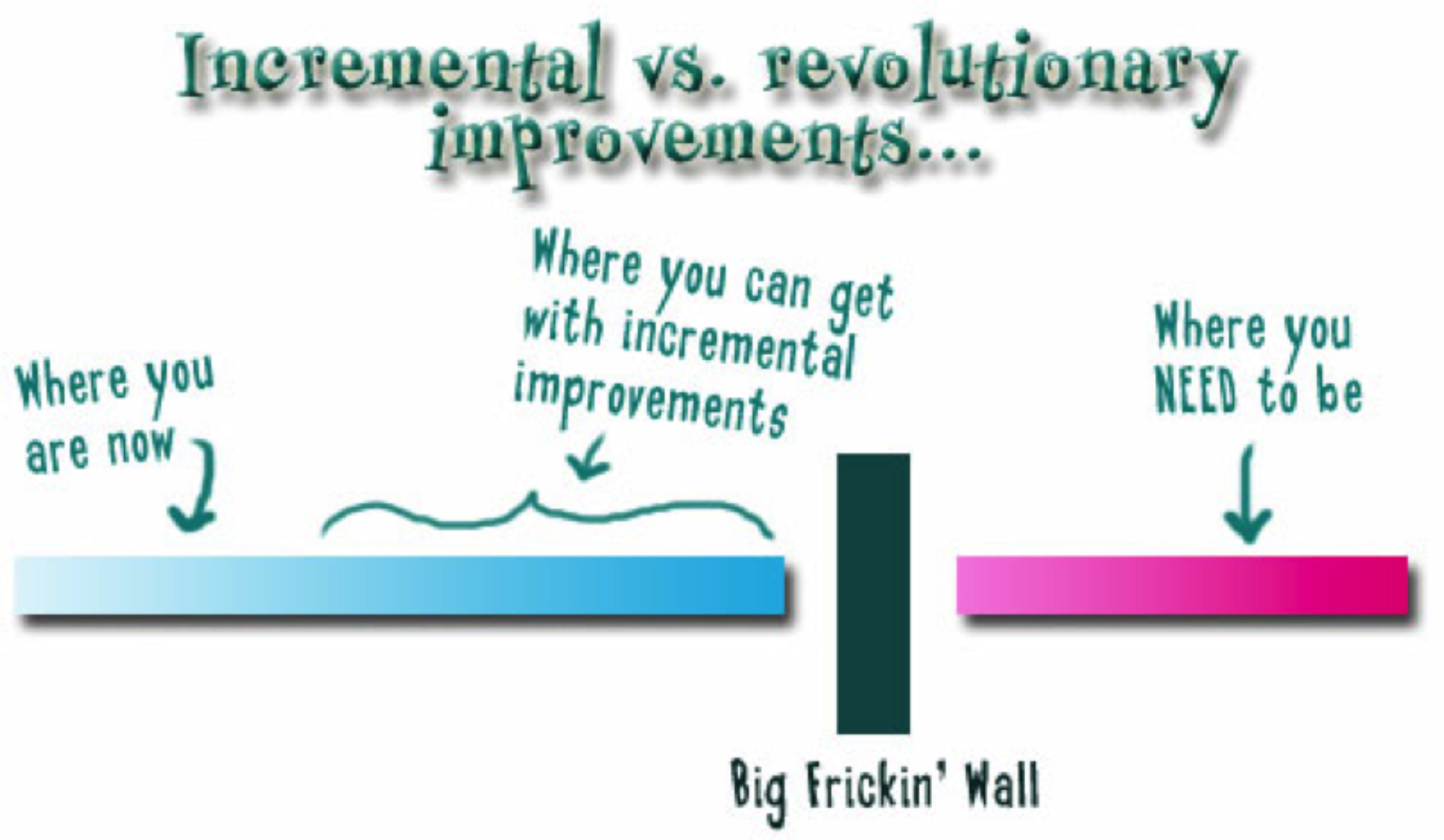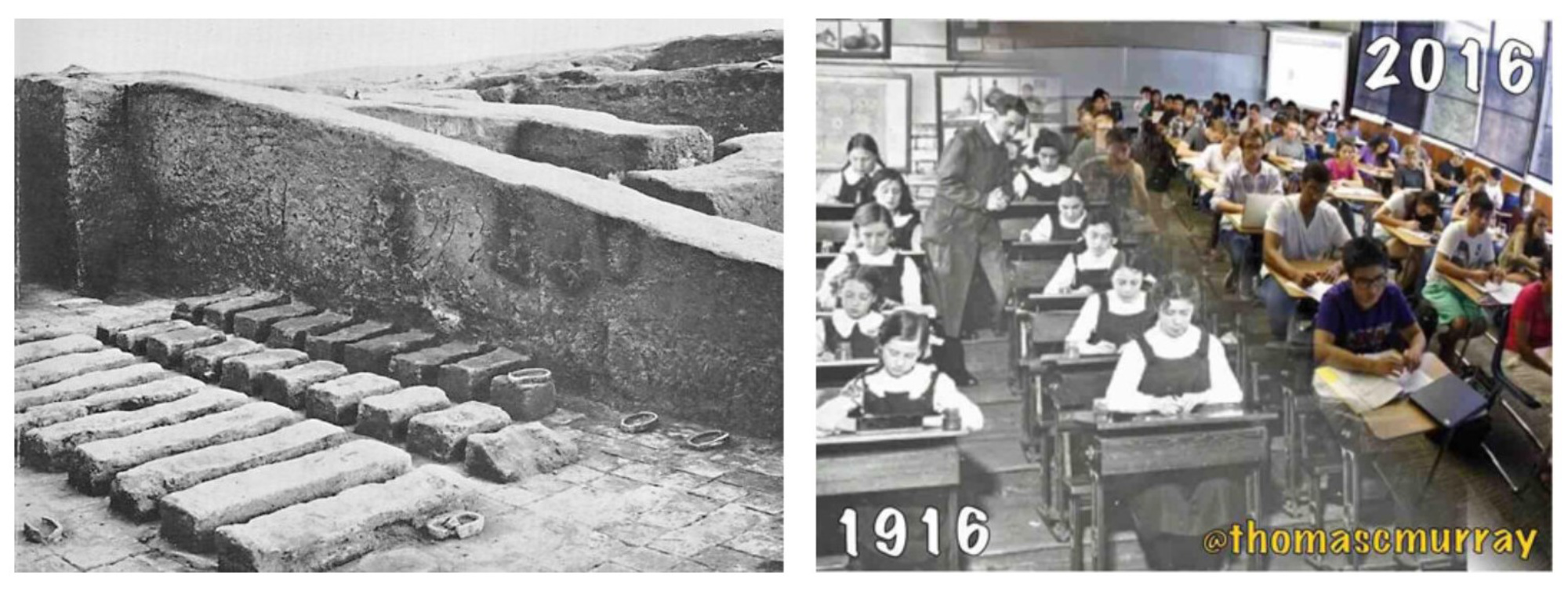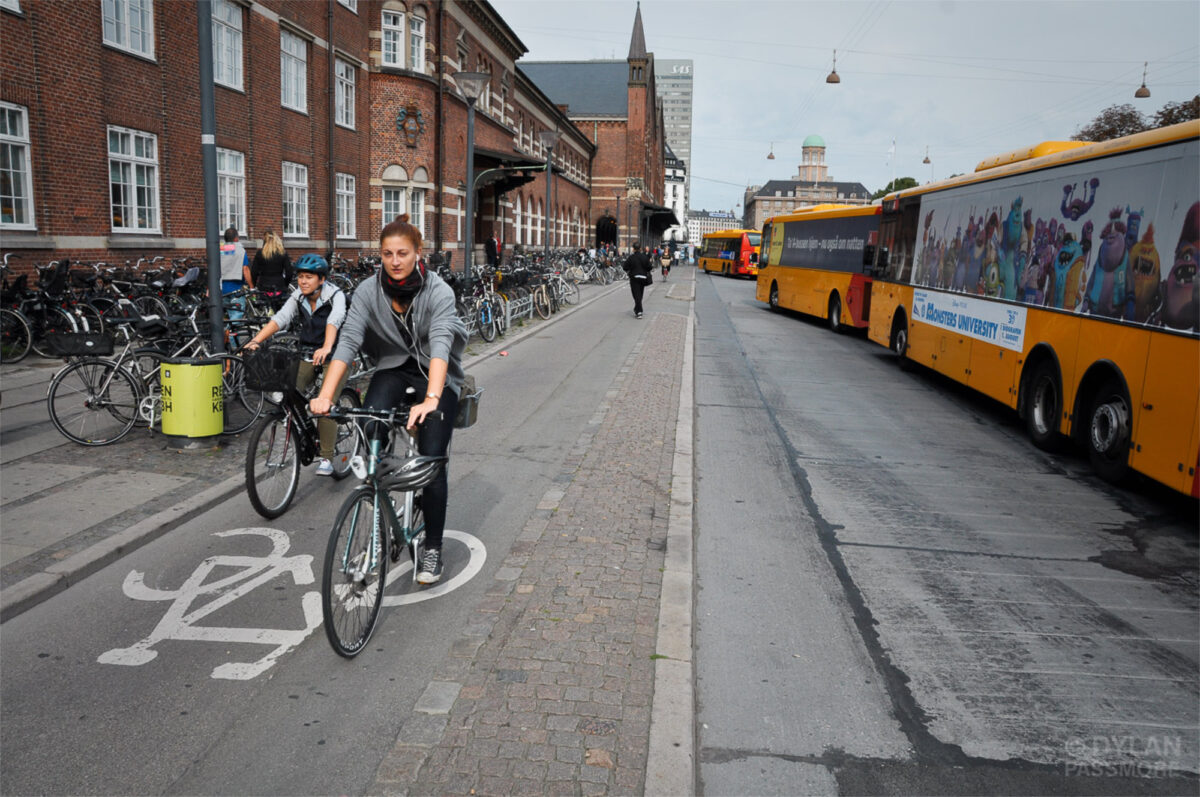Chapter Contents
Obstacles to Addressing Climate Change
- Controversial Issues and Complex Systems
- Creating Meaningful Dialogue
- Factors That Influence How We Think
- How do People Change Their Minds?
- How Can We Envision New Systems?
- Resources
Image above of bicyclists and buses in Copenhagen, Denmark by Dylan Passmore (CC BY-NC 2.0) via Flickr

By analogy, on the route to improving educational outcomes, we need to make better schools, but there’s a ceiling effect if we’re locked into the systems of traditional schools. Eventually it is likely more important to make an educational system that is better than schooling. This, of course, is a heavy lift. We hope that the approaches and ideas discussed here serve both the existing educational system and whatever educational systems might lie in the future.

For adoption to occur of new system innovations—transportation, energy, education, or otherwise—the new things need to look enough like the old things to be understandable. Successful (broadly adopted) innovations are likely to be “optimally distinct,” that is, different enough from current practice to make a difference in outcomes, but not so different as to be outside of cultural or professional norms or too weird to be understood. (Berger, 2016) In a study of journal articles with the highest impact, for example, it was found that found that combining conventional science in unconventional ways is twice as likely to yield higher impact studies than either novelty or conventional science alone. (Uzzi et al., 2013) For reforms of systems that make a difference to mitigating climate change, we need to consider how to combine conventional ideas in unconventional and productive ways.



